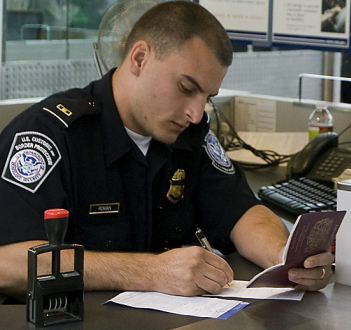This is part of a book project, see explanation here. It’s written as part 1B in this outline. For the Google Doc version, see here.
The UN-led international order is primarily dedicated to protecting the “sanctity” of borders against foreign invasion, or, to a lesser extent, interference.
The universal hegemony of the Western nation-state model is a major historic victory for the statesmen, especially Anglo-American statesmen, who built first the League of Nations and then the United Nations, and who successfully established a post-WWII world order largely conforming to their ideological vision of how mankind should be politically organized. Though Woodrow Wilson’s career ended in humiliating failure when the US Congress failed to ratify the Versailles Treaty, leaving the US outside the League of Nations, Woodrow Wilson is probably the single most important intellectual influence on the modern geopolitical order, which attempts to embody the principle of national self-determination that he propounded.
The world was definitely not organized on the basis of national self-determination in 1914. For one thing, there was great freedom of migration. Though some border controls existed, e.g., at Ellis Island, where a small proportion of would-be immigrants were sent back for medical reasons, it was possible for most people to go migrate into and out of the leading nations of the world without passports or visas. If it is part of national sovereignty to control citizenship and residency in a nation’s territorial boundaries, as is often alleged, the nations of the world in 1914 did not enjoy, or at any rate did not exercise, effective national sovereignty. Furthermore, most of the surface of the globe at that time was governed not by nation-states, but by large transnational empires. Among these, there was a distinction between dynastic empires ruling over large landed territories containing ethnically varied peoples all subject to the same monarch, and colonial empires in which a “mother country” with an independent national life ruled over overseas territories inhabited by peoples who were definitely considered to be at a lower civilizational level, and with whom the mother country’s historic contacts, usually commercial in nature, had begun much more recently, during the European Age of Exploration. Of the dynastic empires, the leading examples were the Austrian Habsburg empire and the tsarist Russian Empire under the Romanov dynasty; China and the Ottoman Empire were other examples. Of the colonial empires, the leading examples were the British, French, and Dutch empires, though the Portuguese and Spanish empires, dissolved well before 1914, had helped to establish the pattern for this kind of colonialism. Woodrow Wilson’s principle of national self-determination, though initially directed mainly against the dynastic empires, was also inimical to the colonial empires, and the dissolution of most of the dynastic empires in the immediate aftermath of World War I and of the colonial empires after World War II both represent victories for Woodrow Wilson’s idea.
Many reasons can be suggested for the long-run success of Woodrow Wilson’s geopolitical reorganization of the world. Obviously, US military power is one major factor. The US remained potentially the largest military power in the interwar years, and became the world’s largest actual military power during and after World War II, as it remains to this day. Indeed, the military preponderance of the US only increased after the fall of the Soviet Union and may have been at a historic peak at the time of the 2003 US invasion of Iraq. But the US did not exactly march out and impose its geopolitical vision on the world. It didn’t join the League of Nations and turned isolationist during the interwar years, except for a few interventions in the Western hemisphere. It joined World War II in self-defense after the attack on Pearl Harbor and Hitler’s declaration of war. That said, the US needn’t have prioritized the European theater, and the energetic war it waged in western Europe probably reflected sympathy for its democratic allies in Europe and pursuit of its principles of justice and right, more than national self-interest. Moreover, the US aided Britain and blockaded Japan before it was officially at war. From WWII on, US military power was deployed worldwide, but often in ways not particularly consistent with Wilsonian principles. Thus, in WWII, the US was the ally of two empires, and after the war, the US connived at the Soviet conquest of eastern Europe. In the Cold War, the US often made “realist” (i.e., cynical) alliances with authoritarian regimes, violating Wilson’s slogan of “making the world safe for democracy.” Wilsonian principles remained the goal, however. The US preferred to ally itself with democratic nation-states when it could, and US backing made it possible for some of these, especially in Europe and East Asia, to flourish in a security which they lacked the military strength to obtain for themselves. Continue reading The modern borders regime was designed to secure international peace

